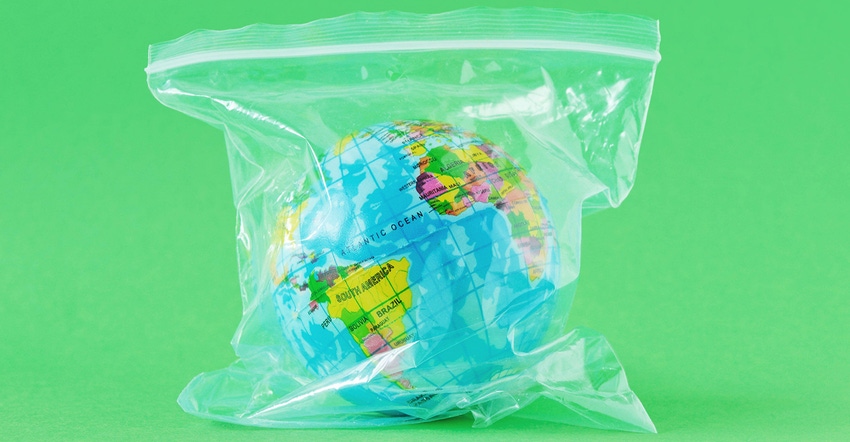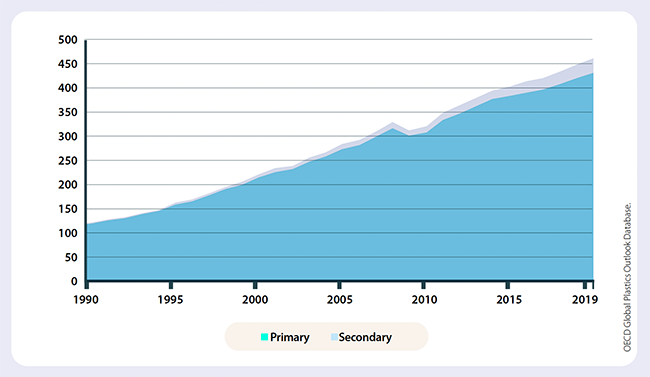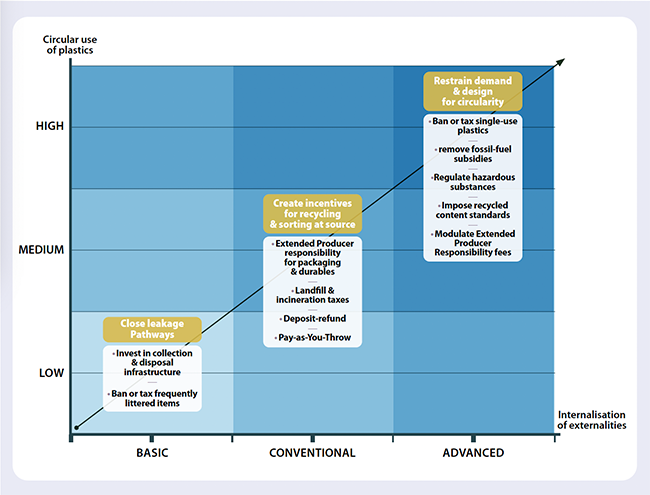The report examines the global scope of plastic pollution in granular detail and identifies four key levers that, in the OECD’s view, can help achieve circularity.
February 22, 2022

The Organisation for Economic Co-operation and Development (OECD) released today its Global Plastics Outlook, an exhaustive report on plastic pollution — its scope along with recommendations on how to manage it more effectively. The report comes ahead of UN talks on international action to reduce plastic waste, scheduled to start at the end of this month in Nairobi.
Although the world is producing twice as much plastic as it was two decades ago, only 9% of plastic waste is being successfully recycled, according to the OECD. Almost half of all plastic waste is generated in OECD countries, according to the organization whose 38 member countries include the United States. It also notes that OECD countries account for 14% of overall plastic leakage — 11% coming from large plastic debris and 35% from microplastics, defined as synthetic polymers smaller than 5 mm.
While COVID-19 led to a 2.2% decrease in plastics use in 2020, according to OECD estimates, production rebounded in 2021 as economic activity returned.
The Global Plastics Outlook is the first report of its kind to offer a granular analysis of plastic waste and quantification of circular plastics, said Shardul Agrawala during a press briefing in advance of the report’s publication. “You can only manage what you can measure,” he said, and the report features an abundance of statistics, charts, and tables that lay the groundwork for the OECD’s proposals for managing plastic waste. It identifies four levers that can help to “bend the plastic curve.”
The report calls for greater economic incentives to support the recycled plastics market. While acknowledging that recycling has grown from 6.8 million metric tons (MT) in 2000 to 29.1 million in 2019, the report notes that recycled plastics still account for only 6% of feedstock used to produce new plastics globally. The OECD calls for further economic and regulatory policies that incentivize the collection and recycling of plastic waste. In particular, the report considers effective sorting at the source to be a critical lever, as that determines the purity and, therefore, value of the recyclate.
|
Secondary production, shown here by million metric tons between 1990 and 2019, is growing, but makes up only 6% of total plastic production. Chart courtesy of OECD. |
The report also singles out boosting innovation in “environmentally relevant plastics technologies” as a key lever. During the press briefing, Agrawala noted that the plastics industry historically has been a hotbed of innovation but that waste prevention and recycling accounted for only 1.2% of plastics innovation in 2017. More ambitious policies are needed, said the OECD.
To increase circularity, the OECD has drafted a policy roadmap for countries with three increasingly ambitious phases, as shown below. In the OECD’s view, economic instruments such as extended producer responsibility, landfill taxes, and deposit-refund schemes will improve recycling rates and reduce plastics leakage into the environment.
|
Policy roadmap shows a stepped approach to promoting a more circular use of plastics. Graphic courtesy of OECD. |
The final lever is stronger international co-operation to achieve circularity and net-zero plastic leakage. Among the key priorities are improving waste management to reduce land-based sources of marine plastic and providing financial assistance to low- and middle-income countries. The bulk of mismanaged waste occurs in those countries, notes the OECD, but the infrastructure investment required is often beyond their means. International support is instrumental in accelerating those investments, adds the OECD.
About the Author(s)
You May Also Like






